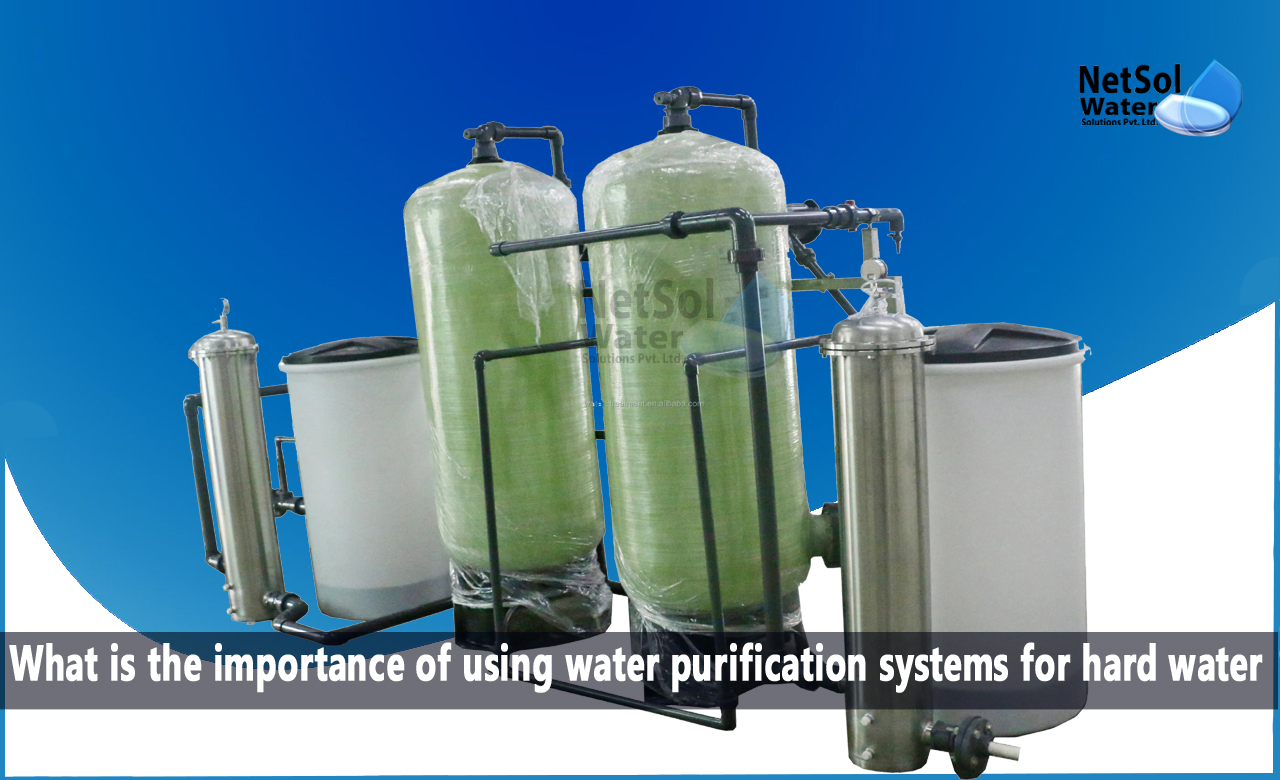Very less amounts of minerals and solutions are dissolved and held in place, as the water passes through rock and soil. In this post, we will explain what hard water is, how it affects health, and the importance of using water purification systems for hard water.
Composition of hard water
Hard water has a large number of minerals. As water percolates through limestone, chalk, or gypsum deposits, which are mostly composed of calcium and magnesium carbonates, bicarbonates, and sulphates, hard water is created. Another possibility is the presence of ferrous iron, which when oxidises to ferric form leaves a reddish-brown stain on surfaces, like enamelled surfaces and washed fabrics.
Hard water may also contain chlorides and sulphates. The origin or source of the water has an impact on its minerals. For instance, if you take a sample of groundwater that has been exposed to dolomite and limestone, the levels of calcium and magnesium will be extremely high.
What happens if water is hard?
Hard water makes it difficult to do almost any cleaning operation, including laundry, dishwashing, bathing, personal grooming, and most significantly, drinking. When boiling turns calcium bicarbonate into insoluble carbonate, this type of water hardness is seen as transient; permanent hardness, on the other hand, is brought on by other salts. Hard water and soap's increased fatty acid content combine to form a gelatinous, insoluble curd that renders the soap useless.
Types of water hardness
There are two types of water hardness: temporary and permanent.
· Temporary water hardness
Due to the presence of magnesium and calcium carbonates, water temporarily becomes hard. This kind of water hardness is brought on by the presence of bicarbonate ions in the water. More carbon dioxide is removed from the water during boiling instead of bicarbonate ions.
· Permanent water hardness
Experts refer permanent hardness as the existence of soluble magnesium and calcium salts in the form of chlorides and sulphides in water. The best option in this case would be a use of hard water filter as boiling cannot remove it.
Possible effects of hard water on health
It has been found that drinking hard water not only harms your health, but may also be linked to the development of particular diseases. Those with sensitive skin are likely well aware of the drawbacks of hard water. This is because hard water causes a change in the pH level of our skin. Our skin's pH levels are essential for protecting it from microorganisms that can cause infections.
When we wash our skin with hard water, this pH barrier is broken, leaving our skin less healthy than before. Dry skin is a common problem. Eczema sufferers frequently experience these effects more severely than non-sufferers. Hard water's impact on your hair may cause your scalp to become dry, which may eventually make your hair brittle.
Importance of using water purification systems for hard water
The following will highlight some of the effects of hard water consumption. It also explains when a home hard water filter is necessary!
Consequences of drinking hard water
Most people do not experience any harmful health effects from drinking hard water. Some people assert that because hard water contains such a wide variety of minerals, it might even be beneficial. Yet, this does not mean that consuming hard water is risk-free.
This is because consuming a lot of minerals may have negative health effects. For instance, the high magnesium content in hard water may contribute to diarrhoea, and possibly kidney function problems. Magnesium and other minerals are removed from the body by the kidneys, so if they stop working properly, the body may start to collect minerals.
Long-term use of hard water is thought to decrease kidney function. Hard water consumption will increase the body's calcium and magnesium levels, which increases the risk of kidney stones in some persons. This malfunction could potentially contribute to other severe disorders. Given the possibility of such serious ailments from consuming hard water, it is imperative to refrain from doing so in order to preserve good health.
The benefits of hard water filters or water softeners
By substituting sodium ions for the complex salts in water, such as calcium and magnesium, a water softener can improve the water's quality and make it more soluble. Thus, to drink and use pure and clean water, install a water softener.
There are further benefits to a water filter that can soften hard water.
Water can also be made clean and safe to drink by installing RO +UV Plant, which will remove bacteria and other contaminants. There are a number of ways to tell if water is hard, which makes it unsafe to drink. In order to remove dissolved particles and other impurities and make water safe for consumption, these are designed to filter water via several stages of filtration.
Water from a hand pump, bore-well, water tanker, or municipal water supply may have a TDS level (Total Dissolved Solids) of more than 300 ppm, which is unfit for human consumption. If your home or property receives hard water, you should choose a RO water filter to make it drinkable.
By eliminating all impurities and converting hard water into soft water, the RO Plant including a water softener, will render the water fit for human consumption. An RO+UV water filter is also recommended for use, since it can treat hard water and remove germs and bacteria from it.
Manufacturers of Water treatment products
With cutting-edge water filtration technology, purchase the best RO Plants and water softeners from Netsol Water. These are ISO certified, BIS approved, and in high demand in the water treatment sector, due to their ability to convert contaminated water into pure water.
To guarantee you get the most out of your equipment, we also offer installation, training, commissioning, and support. For further information or to make a product purchase, contact us at +91-9650608473 or drop a mail at enquiry@netsolwater.com



